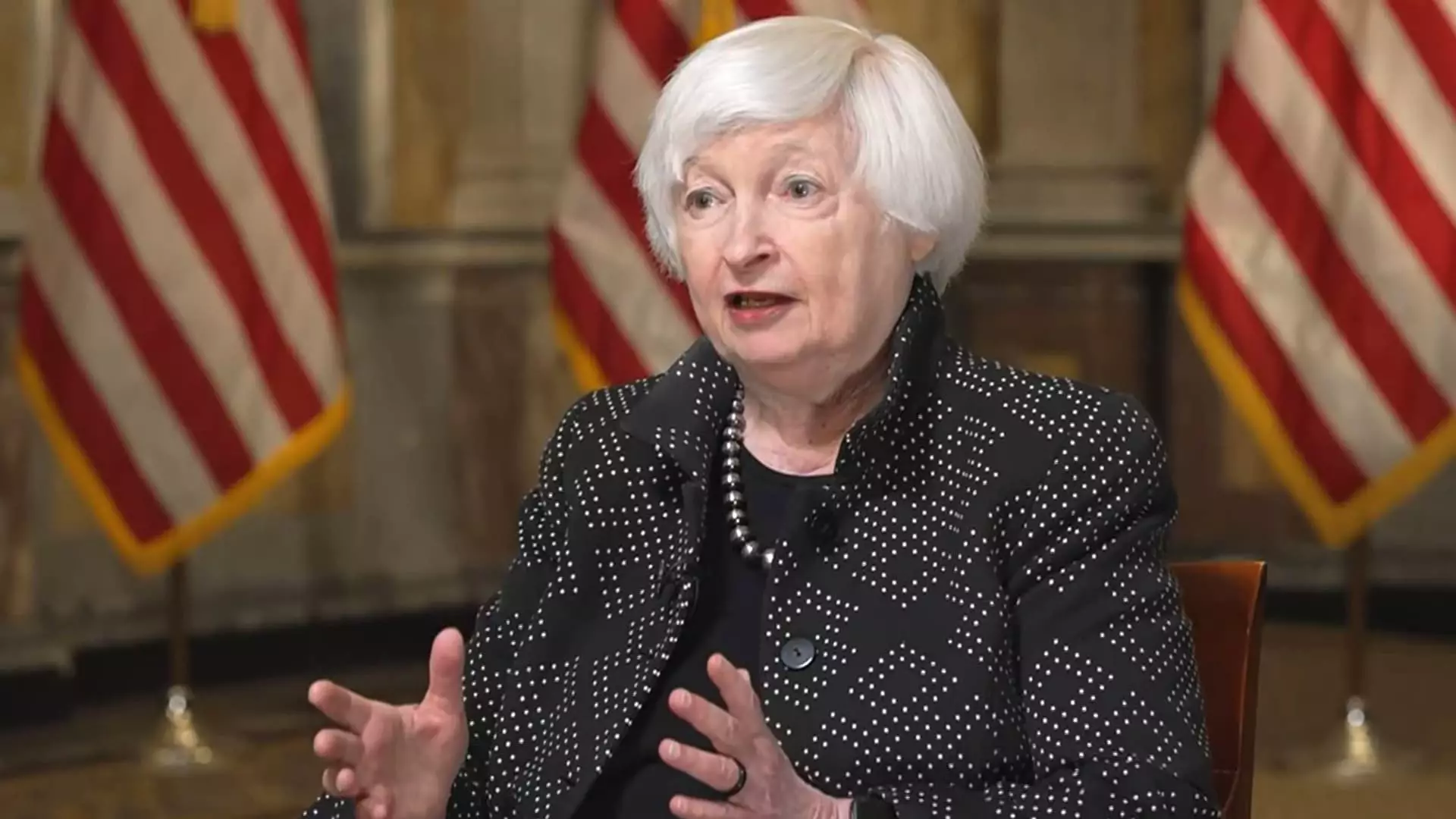In a recent interview with CNBC’s “Money Movers,” outgoing Treasury Secretary Janet Yellen reflected on the measures taken during her tenure, particularly regarding the Covid-19 relief efforts and their implications on inflation. Yellen acknowledged that the $1.9 trillion stimulus package implemented under President Biden’s administration may have had some influence on the inflationary pressures currently facing the United States. However, she emphasized that the primary drivers of inflation stem from significant supply chain disruptions resulting from the pandemic itself. This nuanced position highlights the intricate relationship between government spending and broader economic phenomena, particularly in a landscape reshaped by an unprecedented global health crisis.
Yellen’s statement underscores the dual nature of inflation during her term: while fiscal measures were necessary to combat the immediate economic fallout of the pandemic, the subsequent inflationary challenges were primarily due to supply-side issues. As consumers and businesses grappled with shortages in critical goods, prices inevitably began to rise. This scenario suggests that while government interventions were critical for short-term relief, they must be viewed within the larger context of systemic supply chain vulnerabilities.
While discussing the necessity of the stimulus spending, Yellen urged for a broader perspective on the economic climate when Biden took office. The urgency of addressing public suffering during a time of rampant illness and unemployment was paramount. Yellen’s conviction that taking decisive fiscal action was essential during such a health crisis highlights the ethical dimensions of economic policy. The argument suggests that prioritizing immediate human welfare can justify expansive fiscal measures, even in the face of future economic concerns like inflation.
This perspective contests the common narrative that stimulus spending alone is to blame for inflating prices. Instead, it calls for an understanding of the precarious interplay between demand-side support and supply-side constraints as critical components shaping the current economic landscape.
Amid challenges regarding rising national deficits, which reportedly escalated to $1.8 trillion in the last fiscal year, Yellen offered a defense of the administration’s fiscal policies. She argued that while interest rates have increased, adding strain to servicing national debt, discretionary spending is at historical lows. This assertion frames the discussion about fiscal responsibility and the pragmatic constraints policymakers face in addressing both deficits and the welfare of citizens.
Yellen’s insights serve to clarify misconceptions surrounding government spending and fiscal health, suggesting that the discussion should encompass broader economic conditions rather than solely focusing on raw deficit figures.
As Yellen prepares to step down, she expressed confidence in her successor, Scott Bessent, with his background in hedge funds. This transition indicates a pivotal moment for the Treasury as it moves forward in addressing ongoing economic challenges. Yellen’s acknowledgment of Bessent’s market knowledge reflects her hope that he will navigate the complexities of the economic landscape effectively, balancing the need for prudent fiscal management with responsiveness to evolving financial demands.
Janet Yellen’s reflections encapsulate the intricate challenges of managing the U.S. economy in a post-pandemic world. Her insights into the interplay of government intervention, inflation, and ongoing financial governance provide valuable lessons for future policymakers navigating similar complexities.

Leave a Reply